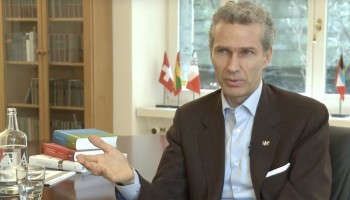The British intelligence watchdog - Intelligence and Security Committee of the Parliament (ISC), prepared the report on illicit Russian activities in Britain, listing names of oligarchs with possible Kremlin links, and other wealthy Tory donors and raising concerns over the threat of Russian interference in the Dec. 12 British parliamentary elections.
Some of the oligarchs, according to the report, have been close to Johnson, such as Alexander Temerko, who has worked for the Kremlin’s defence ministry and the defunct Yukos Oil Company. Temerko has reportedly supported Johnson’s Conservatives with more than 1.2 million British pounds (US$ 1.54 million) over the past seven years.
The paper also obtained the names of several other Russians who significantly supported the British Conservative Party. One of them was Lyubov Chernukhina, the wife of former deputy Finance Minister Vladimir Chernukhin, who allegedly gave the largest donation in the past year - 450,000 pounds ($579,000).
The other was Alexander Lebedev, one of top-100 Russian tycoons on the Forbes list and ex-KGB spy, and his son Yevgeny, who co-owns Britain’s Independent and Evening Standard newspapers and their close relations with Boris Johnson, but did not precize if they also financially supported Johnson’s party.
An independent global media platform openDemocracy last week also presented its investigation saying that “The Conservatives have received significant recent cash injections from a number of Russian donors and their associates,” listing amounts of donated money similar to those in the ISC report.
The Conservatives, according to openDemocracy, have received more than 3.5 million pounds ($4.5 million) from Russian funders since 2010.
Downing Street, however, refused the possibility to publish the 50-page ISC report before the elections.
Grant Shapps, the transport secretary, according to The Times, tried to justify the government’s decision saying that the government was “not allowed to publish things which are seen as controversial in any way,” during general election campaigns.
The Guardian cited the ISC Chairman Dominic Grieve, who called the government’s decision “jaw dropping,” stressing that no reason for the refusal had been given, while Labour and Scottish National party politicians accused Johnson’s cabinet of refusing to recognize the scale of Russian meddling.
“The protocols are quite clear. If the prime minister has a good reason for preventing publication he should explain to the committee what it is, and do it within 10 days of him receiving the report,” Grieve said as quoted by the newspaper. “If not, it should be published,” he said.






